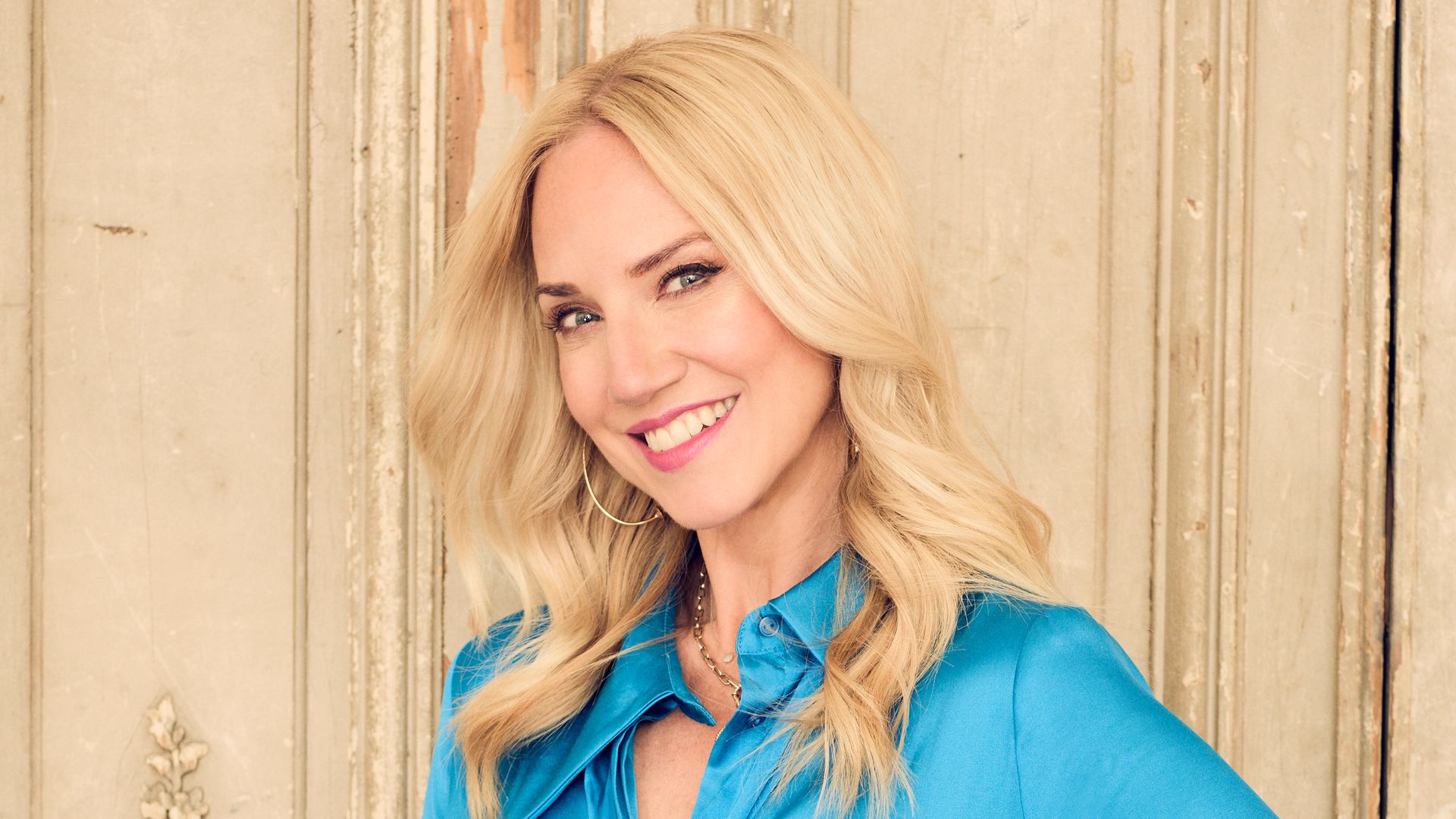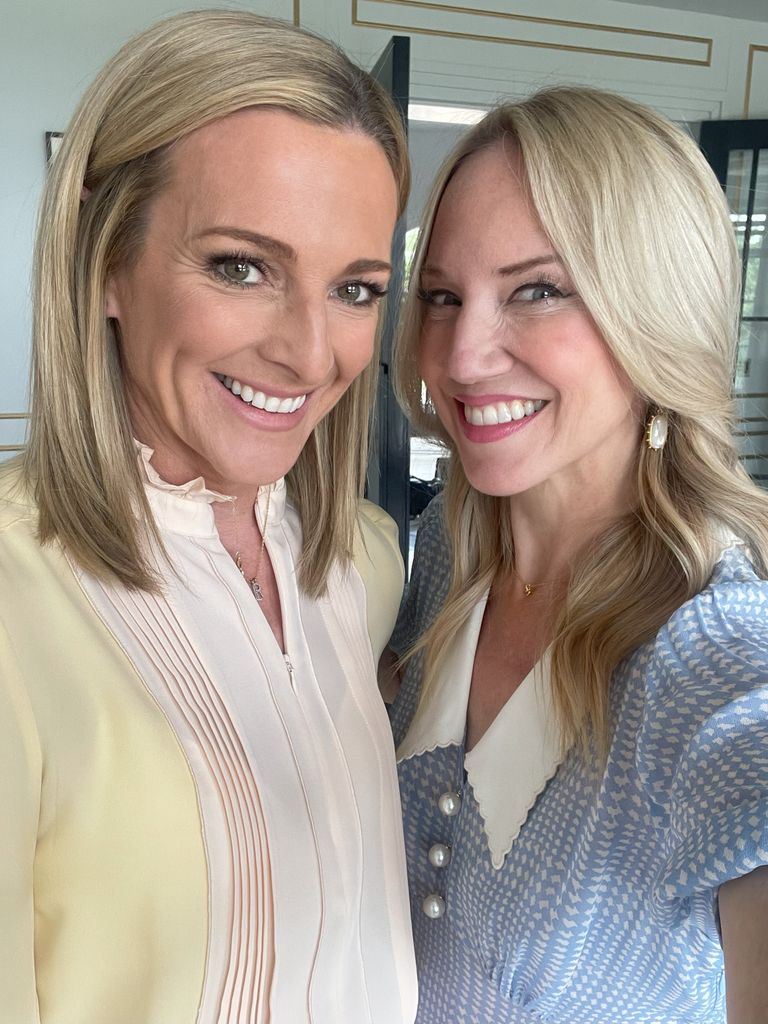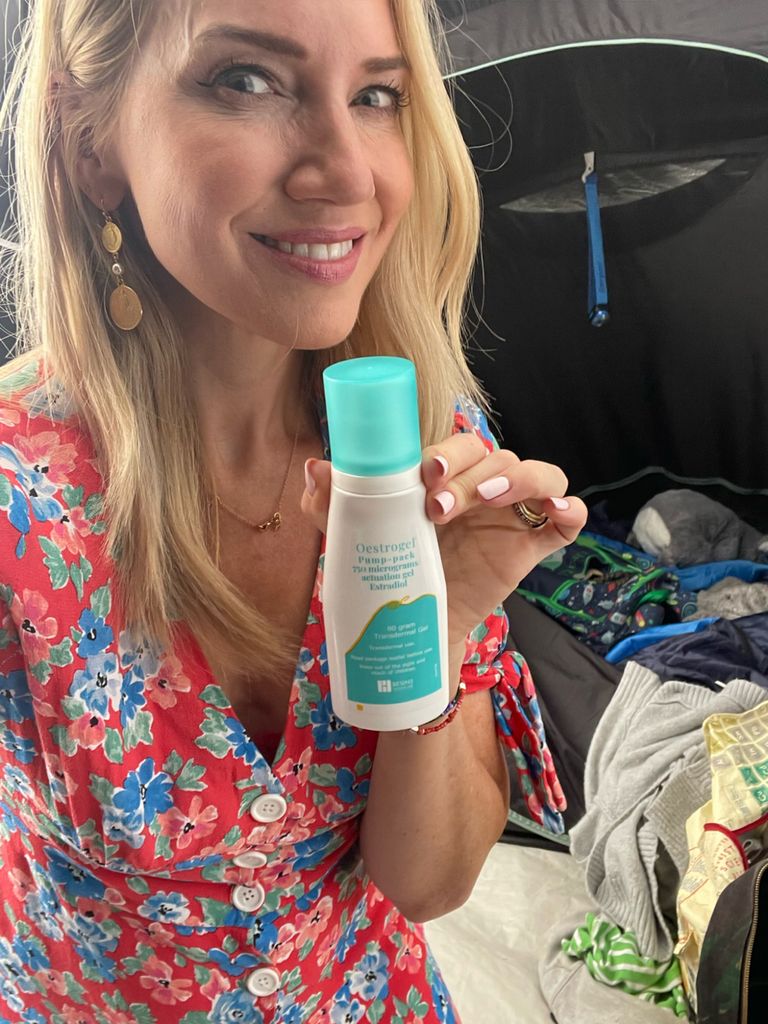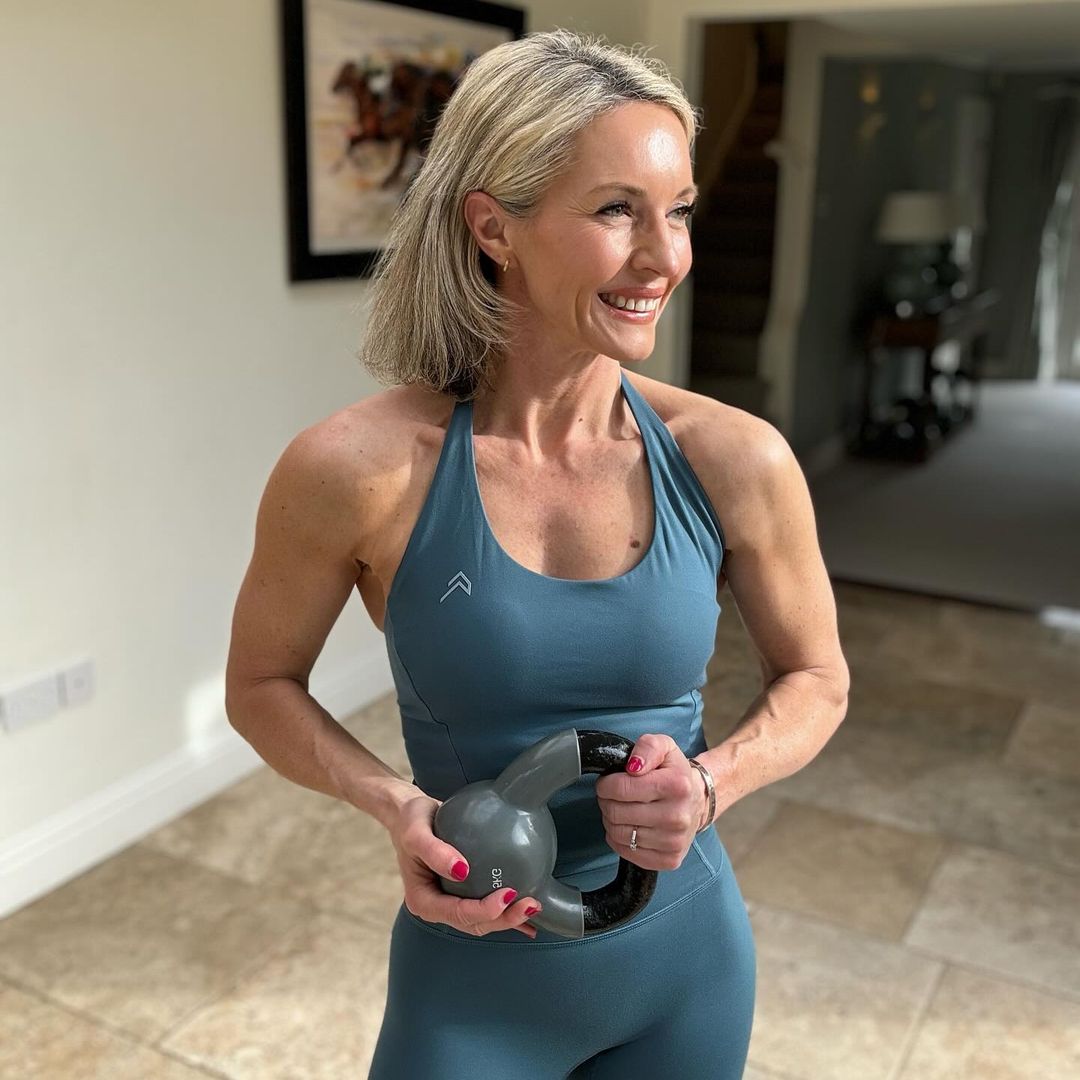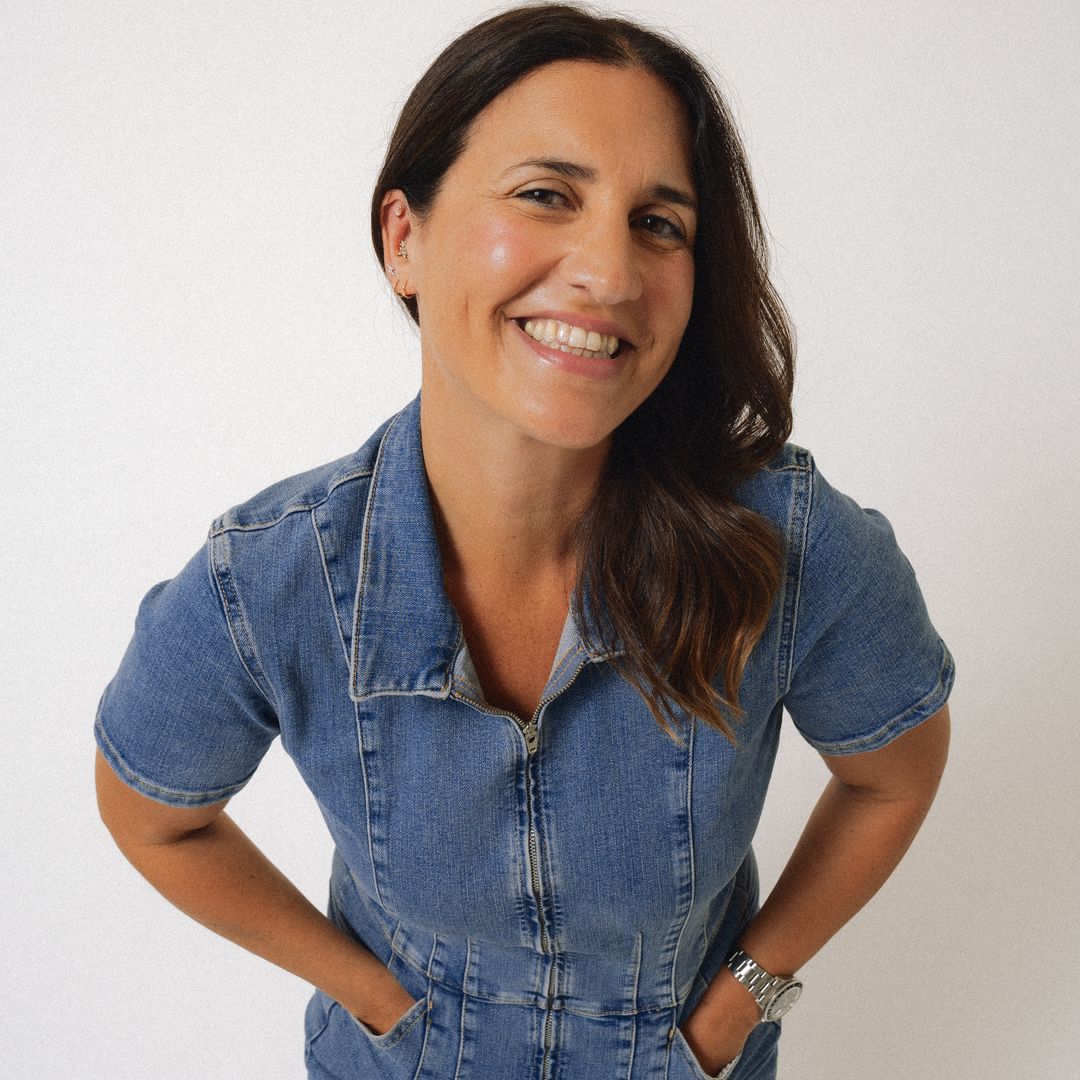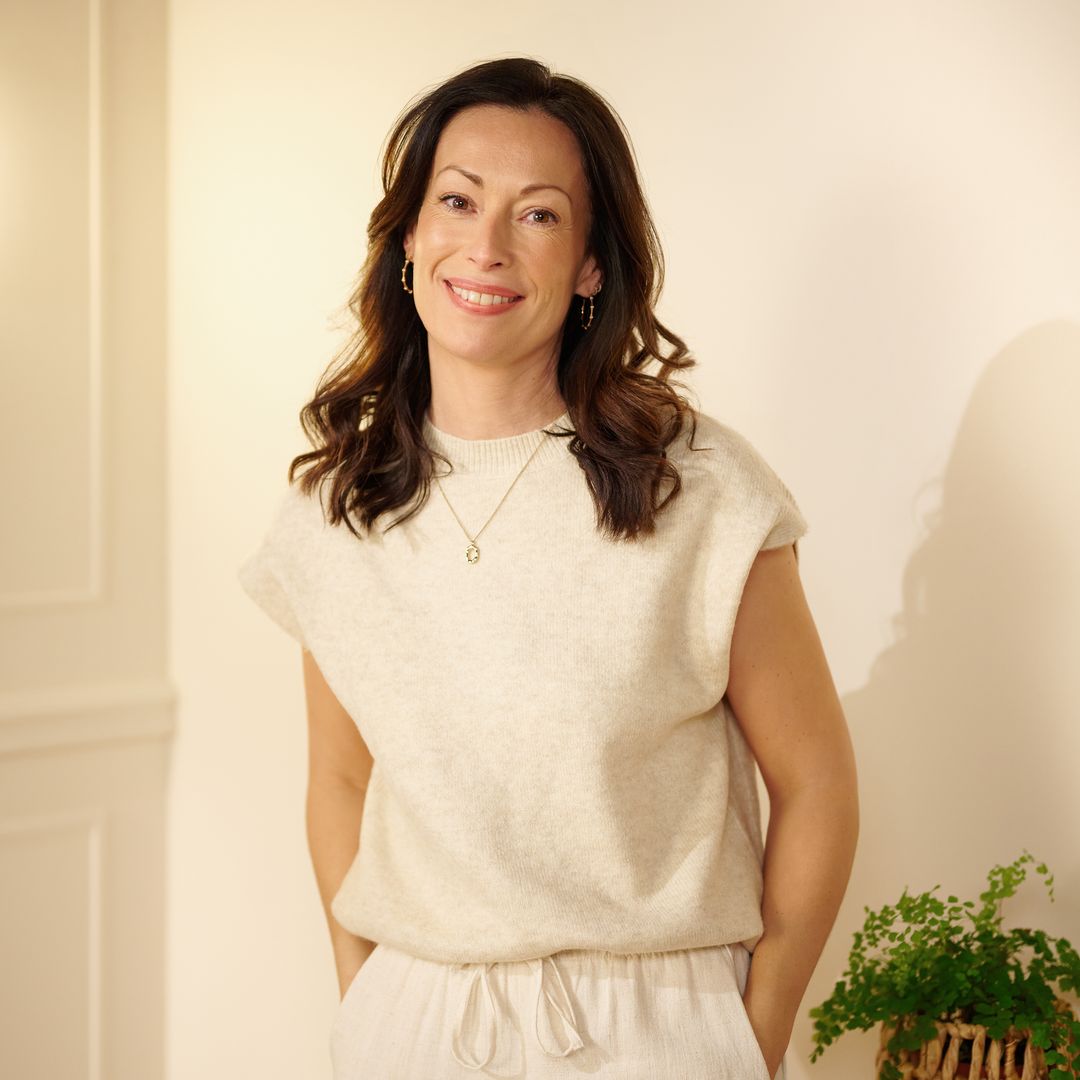When I proudly championed the launch of the Menopause Workplace Pledge campaign at HELLO! at the end of 2021, we knew the initiative would have a positive impact on a huge number of women in Britain, but I didn’t realise the huge effect it would have on me personally.
It was during an interview with sports presenter Gabby Logan the following year, that I had my penny-dropping moment.
As Gabby openly discussed her perimenopause symptoms for the campaign, she told how anxiety, brain fog and skin changes began at the age of 47 (my age at the time). I nodded my head sagely, relating to her every word.
When I confided in her afterwards, Gabby kindly suggested that maybe I was perimenopausal. It honestly hadn’t seriously occurred to me before.
I had been to the GP previously to discuss feelings of anxiety and hot sweats, especially at night, and was prescribed the antidepressant Sertraline, which helped, but didn’t address everything, and I didn’t feel in a position to question the doctor’s prognosis. It turns out this is a common situation.
The perimenopause
The perimenopause (the transition stage leading up to periods stopping) and menopause (defined as having gone a year without a period), usually affects women between the ages of 45 and 55, but it can happen earlier and there are differences in biological and hormonal changes in women of different races and ethnicities, and those who have undergone surgery.
The timing can be hard to pinpoint because symptoms vary widely and the long list of over 36 attributes associated with each stage of the menopause, which include mood swings, insomnia, hot flushes, bloating, changes in sex drive, depression, changes in skin texture and irregular periods, can start years before periods stop and carry on afterwards, yet the duration and severity varies from person to person.
It’s no wonder that some of us struggle to understand what is happening inside our bodies and minds!
Statistics show that three in four women experience menopause symptoms and, for one in four of those, symptoms are severe – often bad enough to lead many to quit their jobs, reduce their hours or pass up promotions due to the affect on their ability to cope at work.
I certainly felt that anxiety had an impact on my ability to work as I regularly felt overwhelmed with managing all the aspects of my working life and personal responsibilities, and my brain fog could sometimes be so bad I struggled to remember the names of colleagues in my office. At one point I attached a phone list to my computer in case I had a mind blank during a meeting.
The Menopause Workplace Pledge was launched by HELLO! together with the women’s healthcare charity Wellbeing of Women, for whom I am proud to be an Ambassador, on the back of these startling statistics.
The aim is that by adding their name to this campaign, employers and individuals can better support colleagues affected by the menopause and to date over 2,500 British businesses such as the BBC, Tesco and Royal Mail have signed up and implemented changes to ensure their staff feel more supported.
Finding the right treatment
It took me a further year of ‘muddling through’ and experiencing irregular periods, to find the treatment that would help me to effectively manage my symptoms.
After deciding to wean myself off the antidepressants, I found my anxiety returned with a vengeance and I was struggling to cope with the daily pressures of work and home life, so I eventually returned to the GP in desperation, close to burning out.
This time I was armed with a key piece of advice: to ask for an appointment with the practice’s menopause expert.
Thanks to my increased awareness of perimenopause, I was better able to advocate for myself. I had been keeping notes of my symptoms and could show the irregularity of my periods. I told her I believed I was in perimenopause and asked to try HRT and my doctor shared the options.
Feeling the difference
I felt the benefits after a couple of months and now I supplement my two pumps of Oestrogel and progesterone tablets by taking Gold Collagen Forte+ to look after my skin, hair, and help with hormone balance, plus The Better Gut – a science-backed probiotic tablet especially formulated to help support the gut health of perimenopausal and menopausal women.
In just a couple of weeks of using HRT it felt as though I had put on some glasses and life went back into sharp focus – I still forget the odd thing, but the brain fog has lifted.
This combination works really well for me, and I feel back to my energised, positive and clear-thinking self.
I have recently gained the confidence to make some changes to my career, reinventing my working life for a portfolio career and I feel poised to enter my fifties excited about the potential of my next chapter. Work is a necessity, but I am doing things I love and feel better able to cope.
Society is changing
After years of stigma and shame, or of ‘just getting on with it’ and battling on, menopause is now being talked about more widely. There are communities discussing it on social media, it is on mainstream tv and the subject of books, thanks to stars like Davina McCall, Mariella Frostrup and Lisa Snowdon using their profiles to share their experiences and raise awareness.
The conversation has also reached Parliament, and on World Menopause Day (18 October 2023), I was honoured to co-host an event at The House of Lords where Carolyn Harris MP announced an all-party Manifesto for Menopause which calls on all political parties to commit to seven reforms ahead of the next General Election.
Reforms include integrating menopause into the NHS free Health Check for women over 40; creating a National Formulary for all types of HRT to ensure that doctors and pharmacists can prescribe any approved medicines, supported by standardised local prescribing guidelines in a bid to help prevent the debilitating shortages in HRT that have been experienced by many; and requiring employers with over 250 employees to introduce menopause action plans to support employees experiencing the menopause.
There is still a long way to go, and there have been widely reported setbacks along the way, including a recent NICE report which suggested that CBT could be offered to women as a menopause treatment too, but which was met with some anger from menopause pressure groups like Menopause Mandate, of which Mariella Frostrup is Chair.
They argue that 'you can’t think your hormones higher' and whilst a holistic approach is always welcome, it won’t help prevent some of the long-term menopause conditions such as osteoporosis and cardiovascular disease.
Despite this, we must have hope and I am positive that our generation is blazing a trail for others by speaking honestly about our personal experiences, and businesses are waking up to the fact that 51% of the population will experience this time of life in some way.
I hope that in telling my story, I can inspire others to advocate for themselves too, though it is important to note we are all different and it is key to involve a medical professional in any decisions you make regarding treatment.
Sign the Menopause Workplace Pledge here.
Rosie hosts HELLO!’s wellbeing podcast In A Good Place.
